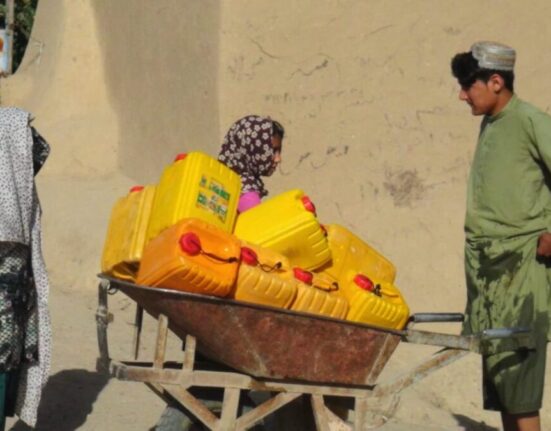Some residents of Afghanistan’s villages claimed on Wednesday that Taliban is collecting ushr from them, which is a 10 percent tax on harvests and 5 percent on land dependent on well water.
A farmer from Imam Sahib district in northern Kunduz province said Taliban has “forcedly” collected 7,000 Afs ($82) from him as ushr.
“I sold onion harvest for 70,000 Afs ($821), and I paid 7,000 as ushr. They came to my house three times and I was hiding. Finally, they took me out of home and I had to pay 7,000 as ushr,” said the farmer.
A resident of Baghlan province in the north said that his household depends on farming and that he pays ushr to the Taliban.
He said that he also pays zakat, another type of charity, for his cattle.
According to him, Taliban has asked him to pay one cow for every 40, and pay 70 kilograms of wheat, onion or potatoes in exchange for 7,00 kilograms and 56 kilograms of rice for each 700 kilograms of rice he farms on his land.
Another Baghlan resident said that he paid also paid one cow for every 40 he owns.
“I have 80 cattle. Taliban took two cattle from me as Zakat and it was taken ‘by force’,” the resident said.
Meanwhile, some residents of Paktia in the east of the country criticized the Taliban for collecting zakat from cattle owners in the province.
“Taliban used to take zakat during the republic government as well but it was not as serious as now. Now, they are too serious and they get one sheep from every 20 sheep or its equivalent,” said a Paktia resident.
A business owner in Kabul who has a number of sports gyms told Amu that he pays 35,000 to 40,000 Afs as tax to the Taliban a year, 20,000 Afs for the license and 5,000 Afs for the banners.
“Previously, there was sports federation that handled the taxes to the government, but now, they have imposed 60,000 Afs as annual tax which they take 35,000 to 40,000 of that from us,” he said.
Taliban did not comment on the process of collecting ushr and zakat as well as taxes. Ahmad Wali Haqmal, a Taliban spokesman for the Ministry of Finance and Misbahuddin Mustaen, a Taliban spokesman for the agriculture ministry did not respond to Amu’s calls for comment about the matter.
Taliban has imposed high taxes on all businesses over the past 19 months, something that has led to the closure of many small businesses such as shops in Kabul and other provinces.
Taliban’s ministry of finance last week reported that national revenues have increased by 37% this year, most of which have been from exports, imports and taxes.





